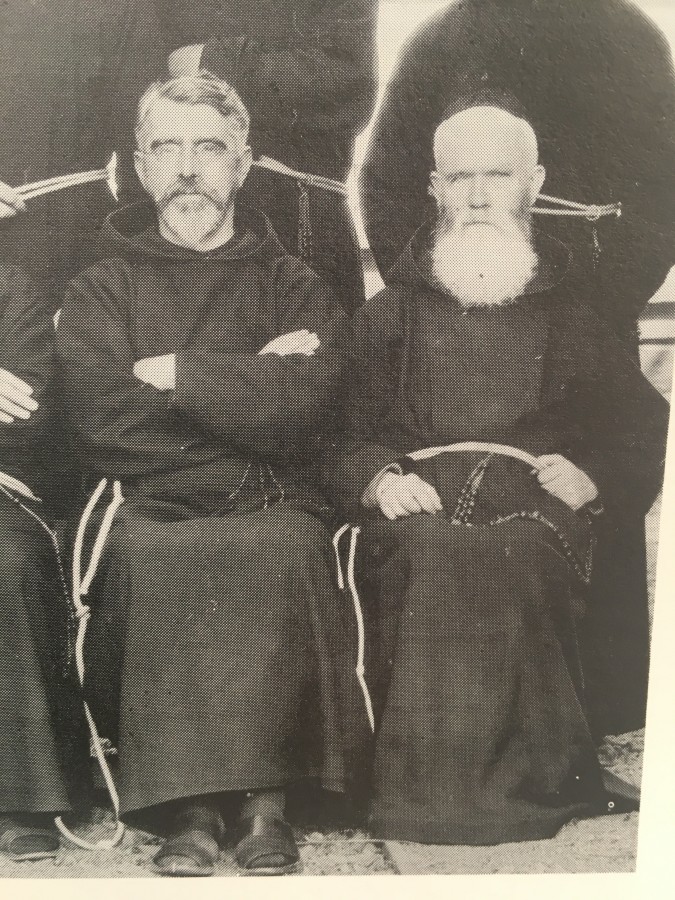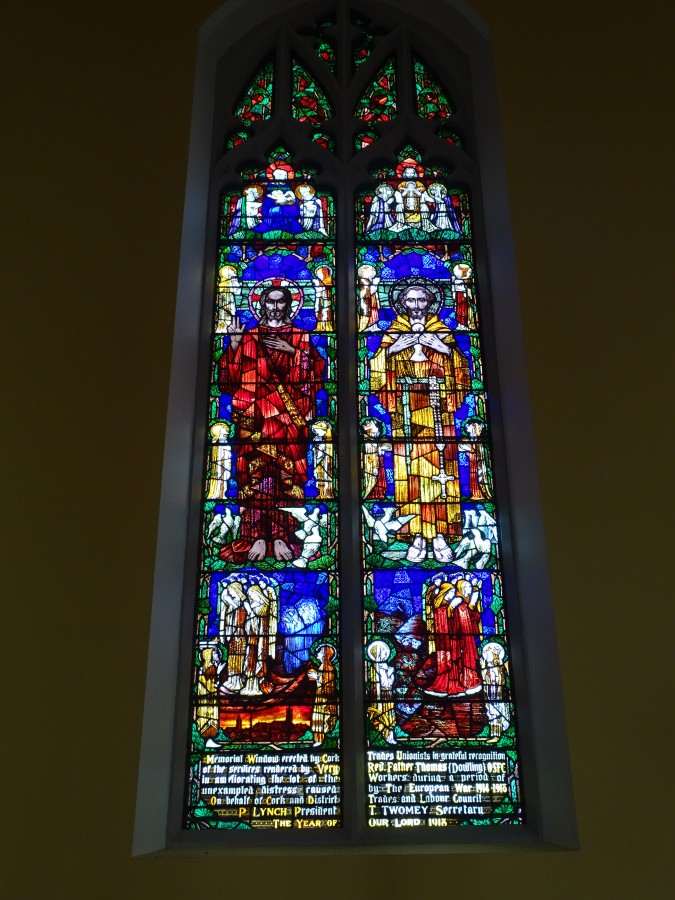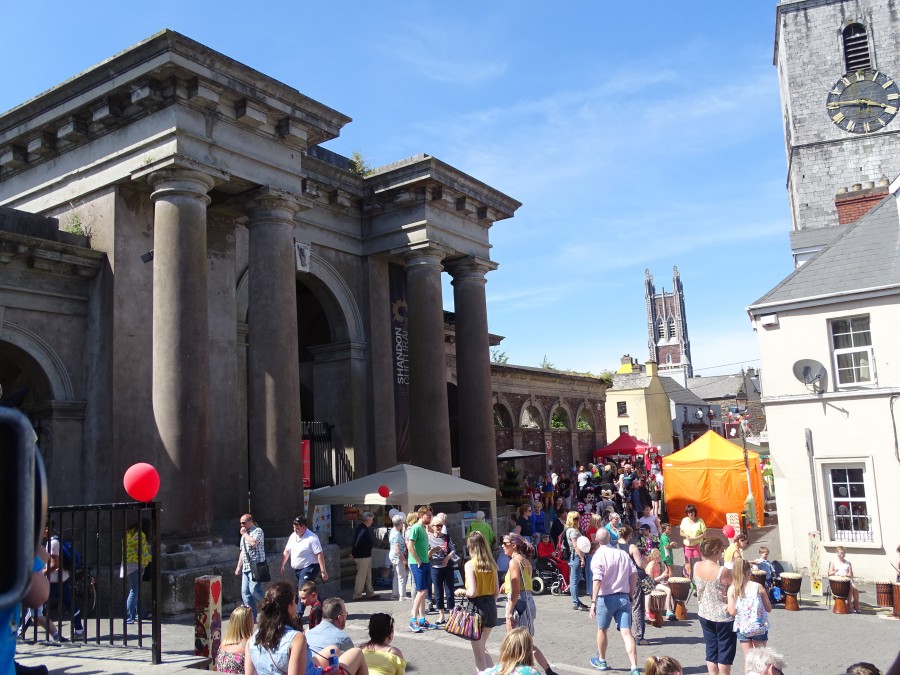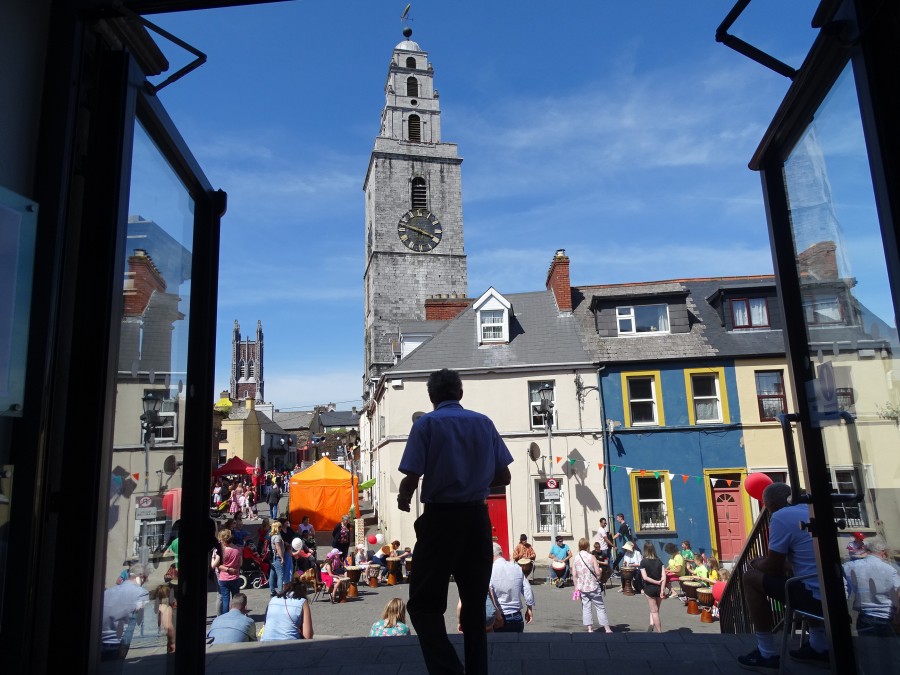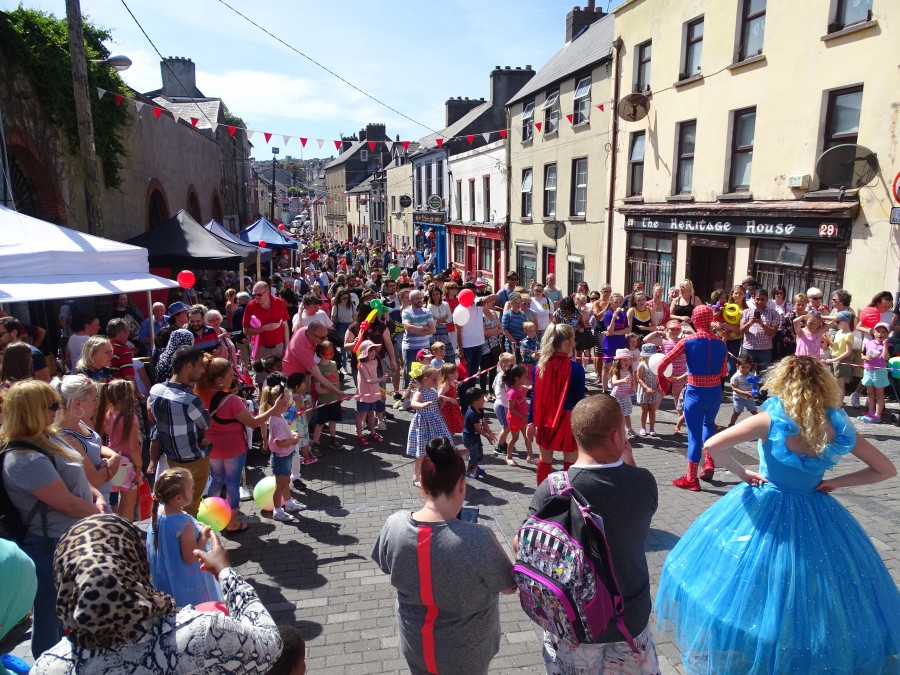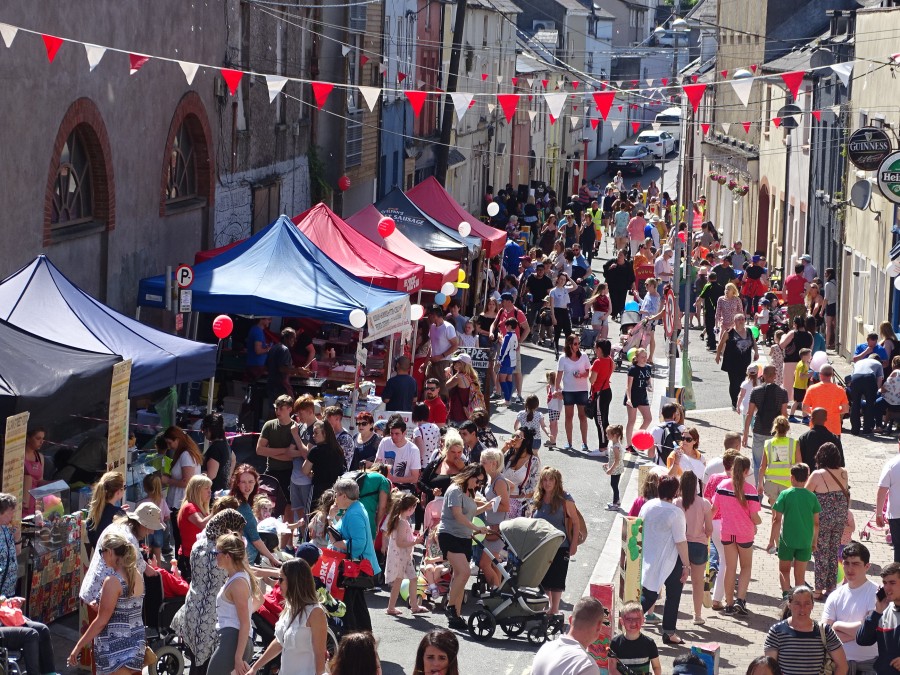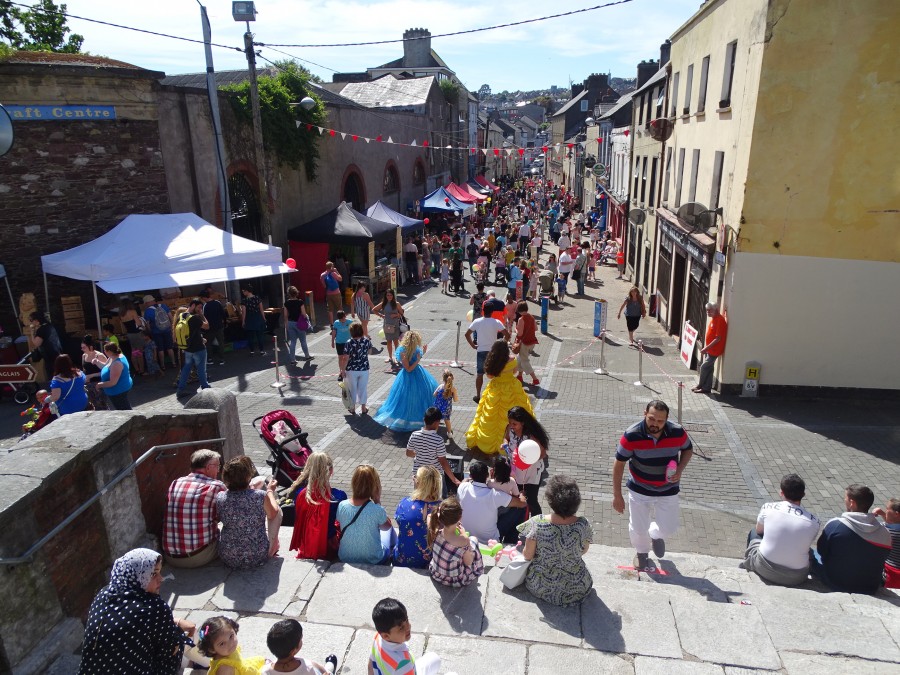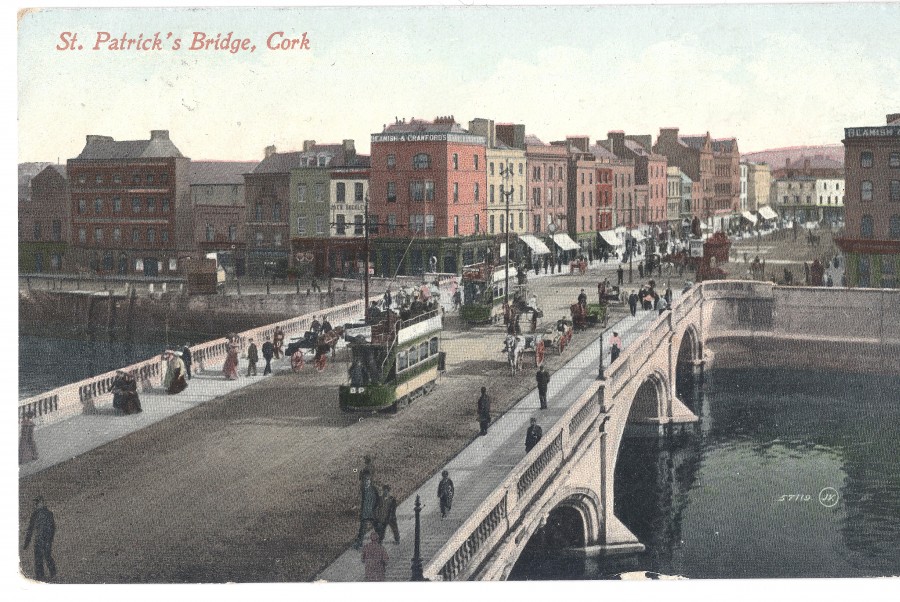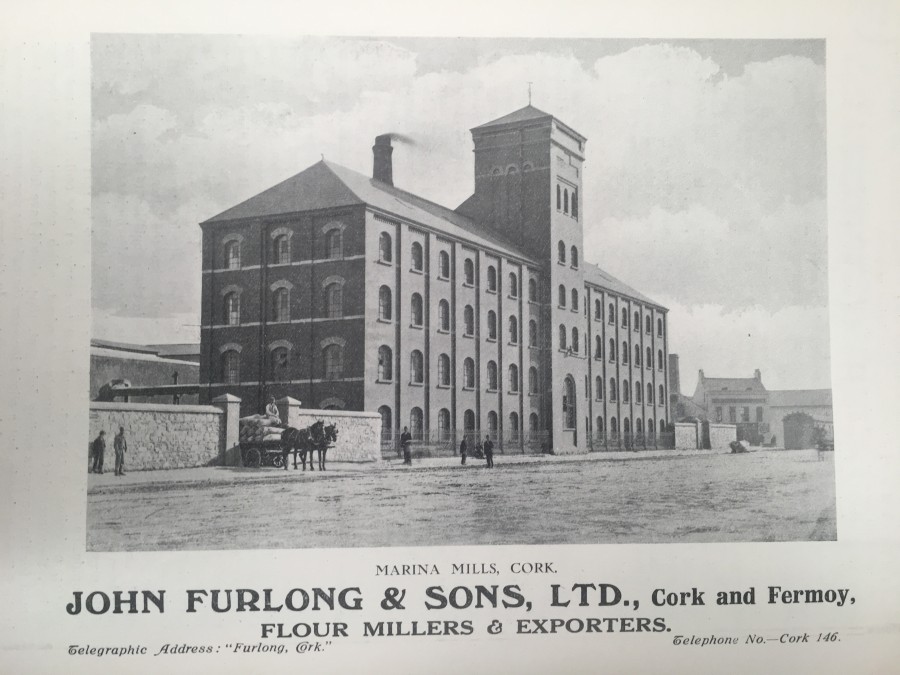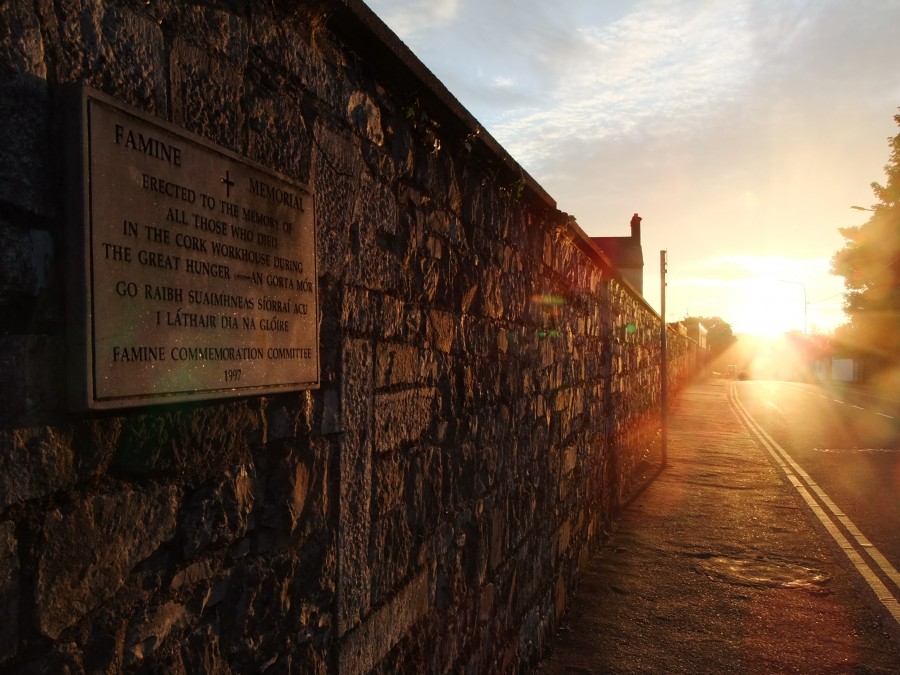Monthly Archives: June 2018
Kieran’s Our City, Our Town, 28 June 2018
Kieran’s Our City, Our Town Article,
Cork Independent, 28 June 2018
Stories from 1918: The Conciliations of Fr Dowling
One hundred years ago this week, on 21 June 1918, the Freedom of the City was awarded by the Corporation of Cork on Capuchin Fr Thomas Dowling. He was honoured for his invaluable services resolving industrial disputes in the city. Fr Dowling’s obituary in the Cork Examiner on 9 January 1951 highlights that he was a native of Kilkenny, where he was born in 1874. He entered the Capuchin Order in his native city at the age of sixteen and was ordained in the Capuchin Church in Kilkenny in December 1896. He arrived shortly afterwards to Holy Trinity Church in Cork.
During the early years of his ministry, Fr Thomas was called on to fill some of the principal offices in the Order He was appointed Guardian of the Friaries of Cork and Dublin, elected a Definitor of the Province in 1907 and Provincial from 1910 to 1913. He was for many years an active member of the missionary staff and earned the reputation of being a pulpit orator of merit.
In his early years in Cork Fr Thomas directed with zeal and energy the Total Abstinence Society attached to the Holy Trinity Church. He hosted 300 members of the Total Abstinence Society attached to the Church. Recreational events took place in a nearby building. On 30 January 1907, the present Fr Mathew Hall was opened in what was then Queen Street. Fr Dowling led the work to create a good auditorium for plays and concerts and plenty of rooms for activities such as a billiard room, a card room, a reading room. For a time attempts were made to run pictures – it was called a Picturedrome. The Christmas Pantomines became popular – the cast being hall members and monies that were made defrayed expenditure. At different times, members organised dramatic societies, bands, orchestras and choral groups. Classes were held in cookery, sewing and needlework, gymnastics and first aid. Outdoor recreation comprised hurling, football and cycling. Teams were entered in the Cork County Championship and local leagues. The positive relationship with the GAA led to frequent permission to run tournaments in aid of the hall.
During the Great War 1914-1918 the cost of ordinary commodities rose considerably in Cork City. As a result, the interplay between rising costs and wages began to affect the economy. Wages could not match prices so strikes were called. Fr Thomas, who had studied social reform, threw himself wholeheartedly into the work of mediation and arbitration in 1918 between employers and trade unions. In late February 1919, he even succeeded in establishing a Cork Conciliation Board and was its first president. It consisted of four delegates from the Employers’ Federation and four appointed by the Cork and District Trade and Labour Council. The office of the board aspired to “endeavour to amicably adjust any dispute that threatens to result in strike or lock-out with a view to preventing same”. Both the Trade and Labour Council and the Employers’ Federation approved the principle that, “no stoppage of work, strike, or lock-out shall take place without the matter in dispute having been first referred to and dealt with by the Conciliation Board”.
Operative bakers, Tramway workers and Cork Gas workers were negotiated with in the first eight months of the board. In early September 1919, the strike of the Cork Gas Works, which entailed considerable loss and serious inconvenience to the public, was suspended by mutual agreement between the directors of the company and their workers. This was in order that the matters in dispute should be referred to Board. The Board met over two days at the Commercial Buildings, South Mall under the Chairmanship of Father Thomas. Representatives of the workers and the directors appeared before the Board and stated their case. The proceedings lasted several hours at each sitting, and at the conclusion Father Thomas announced to both sides that a unanimous recommendation was arrived at by the Board which he appealed to both sides to-accept.
Fr Thomas clocked up notable accolades. The Freedom of Cork City was conferred upon him in June 1918. The Senate of the National University of Ireland paid tribute in 1920 by conferring on him the honorary degree of LL.D. A physical recognition for his general services for the Cork Trade Unions exists in a stained-glass window, to his memory in Holy Trinity Church. It was unveiled on 4 May 1919 and was the design of the famous stained-glass artist Harry Clarke but it was made by his father Joshua.
At the luncheon of Dublin Rotary Club, of 6 November 1922, Fr Thomas as guest speaker, criticised the general tendency to lay emphasis on the rights of employers and the duties of workers, which, as he aptly put it, led people to forget that employers had rights as well as duties; “The fundamental law of the social state should be equality of essential rights and equality of essential duties…It was a fundamental religious principle that human labour should not be treated as an article of merchandise, the value of which is to be measured merely by the fluctuating of supply and demand”.
In early 1923, whilst still Guardian of the Cork Friary, Fr Thomas generously offered himself for the service of the Order in the American section of the Irish Capuchin Province. In 1946 Fr Thomas celebrated his golden jubilee in Los Angeles, USA.
Captions:
952a. Fr Thomas Dowling, on the left, c.1924 from The Irish Capuchins, Record of a Century, 1885-1985 (source: Cork City Library)
952b. Fr Thomas Dowling Memorial Window, Holy Trinity Church, present day (picture: Kieran McCarthy)
Kieran’s Upcoming Historical Walking Tour:
Saturday 30 June 2018, The Lough & its Curiosities; explore the local history from the Legend of the Lough to suburban development; meet at green area at northern end of The Lough, entrance of Lough Road to The Lough; 12noon (free, duration: two hours, on site tour)
Shandon Street Festival, 23 June 2018
McCarthy: Family Hub Accommodation Required to Meet Demand
Press Release:
Independent Cllr Kieran McCarthy has called for more supported accommodation for homeless families who need it in the city and region.
“There has been much engagement between the Housing & Community Directorate and various stakeholders in the property and construction sector with regard to the delivery of sustainable housing solutions as part of the Rebuilding Ireland Action Plan for Housing & Homelessness. The term sustainability though carries extra responsibilities. Yes homeless families need a house over their head but the homelessness list of Cork City Council also reveal that many people need social supports as well to move their lives forward and those of their families- to get themselves back on their feet”.
Following approval of funding by the Department of Housing, Planning & Local Government, Brian Geaney, Director of Services of Housing and Community Services Cork City Council has supported the acquisition of a premises at the Western Road, Cork which was a former hostel. It will now provide temporary supported accommodation for up to seventeen families that are currently residing in bed & breakfast and hotel accommodation. As part of the Council’s response to the Rebuilding Ireland Action Plan, the Family Hub Project will provide temporary supported accommodation with cooking & laundry facilities.
Cllr McCarthy highlighted that the provision of supports to families in the Family Hub is crucial: “supports will be provided in the following areas – access to a family support worker with regular engagement, Support to families to identify and access long term accommodation, Support plans for families to include health and schooling, Linking families to services for housing. childcare. Education & health, Life skills supports including budgeting, parenting, meal planning and recreation, and access to the City Council’s Placefinder Service”.
The Good Shepherd Cork Limited, will have overall responsibility for the day to day management of the facility and will therefore deal with all health and safety matters, service agreements and collate any related outcomes health& safety matters, service agreement sand collate any related outcomes. The facility will become operational in June and families are currently in the process of taking up occupancy.
McCarthy: Repair of the Historic St Patrick’s Bridge Moves to Phase Two
Independent Cllr Kieran McCarthy has praised the ongoing work programme on St Patrick’s Bridge. “Phase one is about to be completed and Phase 2 of the works includes for the repair, restoration and renewal of substantive elements of the bridge is to begin from late June onwards. The Bridge is a key landmark in the city and a crucial piece of infrastructure into and out of the city centre island. Investing in its future is very important”.
A report by Gerry O’Beirne, Cork City Council’s Director of Roads and Transportation, last Monday revealed that works commenced on site in February 2018 with the careful removal of heritage lamp standards located on the bridge parapet. They, together with a further four in storage, were dispatched to lighting restoration specialists, Neri, based in northern Italy, for repair and restoration. Works involved the cleaning, repair and restoration of the lighting standards and their protection and repainting under factory conditions. As part of this process, a mould was also created to make additional duplicate columns. Upon completion, 12 restored/replicated standards are to be returned to the bridge complete with new lantern heads with LED fittings where they will be remounted under Phase 2 of the works in their original positions as when the bridge was first constructed. These works are now well advanced, with the 12 restored/replicated standards and lantern heads due for delivery to Cork City Council in late June 2018. Following a competitive tender process, Cork City Council appointed SSE Airtricity Solutions Ltd.to undertake Phase 1 of the project. The project is fully funded by Transport Infrastructure Ireland.
Cllr McCarthy noted: “the bridge opened in 1861 and is representative of nineteenth century design and construction. Its restoration must be sympathetic to these values as well as to its unique heritage and historical importance. The structure is included in the Record of Protected Structures and is listed in the National Inventory of Architectural Heritage. I am looking forward to seeing the return of the lamp standards”.
“It is also important that the three elliptical ashlar limestone arches are checked and repaired. They have some really beautiful carved keystones of St Patrick, St. Bridget, Neptune and three sea goddesses, as well as carved limestone balustrades and v-shaped cut waters to the upstream and downstream elevations”.
Phase two of the works on St Patrick’s Bridge will be overseen by Cumnor Construction Ltd. The works include for the repair, restoration and renewal of substantive elements of the main structure as follows: Removal of all vegetation and algae from stonework. Cleaning of stonework, including carbon deposits. Repair and replacement of damaged or missing sections of stonework. Repointing of missing or defective masonry joints. Replacement of statutory and directional signage. Replacement of footway surfacing and kerb stones. Replacement of existing traffic signals on northern junction. Repainting section of pedestrian barrier railing on Merchants Quay. Waterproofing of existing reinforced concrete slab. Replacement of carriageway surfacing and road markings. Installation of newly refurbished heritage lighting standards and lanterns on bridge parapets. Erection of Public Lighting Columns and Lanterns within the eastern (downstream) footway. Installation of new elevation lighting. Cabling, conduits, ducting, meters, mini pillars and all electrical works for lighting elements.
Kieran’s Our City, Our Town, 21 June 2018
Kieran’s Our City, Our Town Article,
Cork Independent, 21 June 2018
Stories from 1918: The Ambitious Region
Building on last week’s article, the annual report of the Cork Industrial Development Association (IDA) was unveiled to the public on 19 June 1918 to meet their fifteenth annual public meeting. Many insights into Cork’s commercial life and regional challenges are given in the document, which was published for the most part in the Cork Examiner.
Ambition was the name of the game in 1918 Cork for the Cork IDA. They neglected no opportunity to promote industrial development in the South of Ireland. Important conferences were held in the Association’s offices with investors attracted by the advent of Henry Ford and Son Ltd. Plans were prepared for the establishment after the war for additional manufacturing enterprises on the harbour, which could host large and continuous employment. Special reference was given to the advantages, which the Cork district offered for the manufacture of agricultural implements portland cement, solid rubber tyres and for the establishment of additional flour and margarine factories, oil and cake mills, leather tanneries, and a dressed meat industry. One development highlighted was the establishment by local businessmen of the Mahon Shipbuilding and Concrete Construction Company. They built concrete barges (built of steel and reinforced concrete instead of steel or wood), which was deemed a step in keeping with the times in that the materials were cheap and readily available.
The challenge of being open to international investment whilst protecting local trade was a constant debate. For example, the Cork IDA, on behalf of a firm eminent in the English floor and milling industry, made an application to Cork Corporation for the purchase of a block of land with river frontage for the construction thereon of a modern port mill. However, local rival trade interests prevailed upon the Corporation of Cork not to entertain the application, which they did.
On the protection of older industries, the Cork IDA praised the acquisition by Richard Beamish of the old-established leather tanning industry of Messrs Dunn Brothers, Watercourse Road, Cork. They publicly congratulated the gentleman on his enterprise and on his plans for the development, of the leather industry in Cork (for which in previous years, the city possessed a good reputation in the leather world).
Watching the importation and impact of non-Irish products was also a core activity and deemed of considerable importance to Irish producers. The supplies to public southern institutions were regularly examined by the Cork IDA’s expert, with a view to ascertaining the origin of such goods. Numerous samples of woollens, linens, handkerchiefs, collars, and writing papers were submitted to the Association by correspondents in various parts of the country for examination as to their place of manufacture.
On occasion, the Cork IDA took action in respect to unnecessary importations in the shape of foreign-made joinery, office furniture, cardboard boxes, etc. The Association drew the attention of the Irish Industrial Development Association (Incorporated) to a trade announcement in The Times of India, in which a Cawnpore (a former British garrison, now named Kanpur) firm of woollen manufacturers offered “Donegal” tweeds for winter suiting. The Cork IDA was asked to take action in respect to on English-made baking powder, the label of which bore a representation of the shamrock printed in green. In addition, an application of an English bottling firm to register a whiskey label with the words “Ould Paddy No 1” was brought by the Association to the notice of a local whiskey distilling company, who controlled a whiskey label bearing the word “Paddy”.
The Cork IDA participated in many public conferences on Irish economic affairs. Mr Andrew O’Shaughnessy of Dripsey Woollen Mills and the Secretary represented the Association at the Fourteenth Congress of the Irish Technical Instruction Association, held in the Royal College of Science, Dublin. The association were also represented on the Conference convened by the Cork Borough Technical Instruction Committee to consider the industrial training of apprentices, with special reference to the needs of Cork. Major G B O’Connor, MP, represented the Association at the All-Ireland Protest Meeting held in Dublin with respect to the demand for the establishment of a receiving depot in Dublin for the convenience and encouragement of Irish manufacturers catering for Government supplies. The Cork IDA also participated in local conferences convened in Cork City Hall by the Lord Mayor to deal with such matters as food supplies, milk supply for the poor, currency fluctuations and the shipping requirements of the port.
The Cork IDA were hopeful for Cork’s future after the war had ended and the need for business and trade to stand together to resolve challenging issues; they noted in their report; “The after-war period will witness greatly increased commercial competition between the nations of the world; it will also, we firmly believe, witness an awakening of industrial development in our city, and district that cannot, fail to influence appreciably the industrial status of our entire community…It is, therefore, a matter of more than ordinary importance that associations and organisations such as ours, especially interested in the economic affairs of the country, should be not only amply endowed with finances, but actively supported by individual and collective action of this character the industrial condition of our country will be improved and the general prosperity of our people be stimulated to that decree which will eradicate for all time the evil of emigration from our national life”.
Caption:
951a. Marina Mills, Cork Docks, from Cork, Its Chamber and Commerce, 1919 (source: Cork City Library)
Kieran’s June Historical Walking Tours:
Saturday 23 June 2018, The Cork City Workhouse; learn about the workhouse created for 2,000 impoverished people in 1841; meet at the gates of St Finbarr’s Hospital, Douglas Road, 12noon (free, duration: two hours, on site tour), in association with the Friends of St Finbarr’s Hospital Garden Fete.
Saturday 30 June 2018, The Lough & its Curiosities; explore the local history from the Legend of the Lough to suburban development; meet at green area at northern end of The Lough, entrance of Lough Road to The Lough; 12noon (free, duration: two hours, on site tour)
McCarthy: Calls for Better Traffic Management Plan for Pairc Uí Chaoimh
Press Release:
This week’s Roads and Transportation Functional Committee meeting of Cork City Council coincided with very frank exchanges between councillors and Pairc Uí Chaoimh stadium manager Bob Ryan and Garda Sergeant James Daly. Independent Councillor Kieran McCarthy who were present presented the concerns of local residents;
“I have had numerous emails from constituents in Ballinlough who have asked for better traffic management. Many have asked me to convey that the recent Ed Sheeran concert traffic management plan needs to be the baseline of all traffic management at least. The current match traffic management plan is not sustainable in the long-run. The local roads cannot cope with the traffic. It is also very difficult to predict traffic movements from match to match. Random parking on greens and grass verges should not be allowed. Ticketing of cars needs to be consistently pursued and towaway needs to be in operation where residents are blocked into their house. I have had calls as well for consideration for a 3-4 km match parking exclusion zone around Pairc Uí Chaoimh. Certainly, the Garda contingent present needs to provide a few more members to push cars on, who are thinking of parking on pinch points before any match begins”.
In response to Cllr McCarthy’s intervention and committee members Stadium Manager Bob Ryan went through initiatives being rolled out to curb the recent traffic chaos from happening in the future. The stadium is working with local GAA grounds to provide parking spaces. Initiatives are ongoing to get more people on shuttle buses and get people walking from the city centre. The clubs of participating counties in stadium matches receive a press release outlining traffic measures in place before the game. There is a dedicated website, where information is posted seven days previously
Bob Ryan outlined that the Ed Sheeran traffic dynamics is difficult to re-emulate but the stadium management remains committed to changing the habits of drivers causing traffic problems. Mr Ryan noted that he is open to costing further shuttle buses to and from the stadium from other parts of the city. He also highlighted that the thousands of GAA supporters who have parked up in the city centre have been of huge benefit to local business. He also called for more ticketing of cars parked up illegally. In concluding with councillors, he noted that he remains open to ideas to try to resolve traffic issues. The Roads and Transportation Functional committee called for the stadium management to be present at future meetings to discuss ongoing traffic issues.
